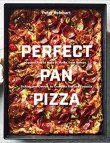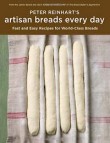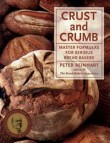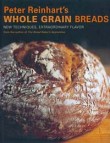Is There Really a Perfect Pizza?
Recently I returned from a “pizza quest” to Southern Italy and would like to share my thoughts on where and what I think is the perfect or best pizza. I have been making dough for over forty years and pizzas for over twenty; it was only after a spell working at London’s most famous pizzeria, Franco Manca, that I felt capable of making a real pizza. The owner, Guisseppe Mascoli, wanted to create the best pizza in London and, with the help of “pizza consultant” Marco Parente, he set about this task. I believe they achieved their goal; but now my goal was to see if I could find an even better pizza in Italy.
My obsessive quest took me to only two cities, Rome and Naples, and only a handful of pizzerias. I purposely excluded restaurants, even those serving pasta. I wanted the real deal and thought a pizza-only pizzeria would deliver the best pizzas. My survey was in no way accurate, impartial, rigorous, or independent, and my research consisted solely of reading some great posts on the Forno Bravo Forum.
I read of a pizzeria, near my Rome hotel, called Dar Poeta . At first sight the pizzas looked good. I obtained permission to check out the oven. It was old and very hot; the dough soft and very cold. In my experience, one of the crucial factors is the intense heat on a cold, barely fermented disc of hand formed dough, creating the puffed up chewy, crispy cornicione full of holes. In artisan bread baking the quest, or holy grail is, as was pointed out in the Tartine video on Pizza Quest, a dough with irregular holes (or, as the French would say, beaucoup de trop). This is a combination of many factors, primarily a low final dough temperature, long bulk proof, and a hot hearth. Which is, as we saw in the video, why the Tartine bread dough makes a great pizza dough!
But back to Dar Poeta pizzeria. I always choose the pizza with the least toppings, so I chose a simple olive, anchovie pie. It was very disappointing; barely any anchovies and nasty dyed, black pitted olives, and the dough was only slightly better. The cornicione was helped by a liberal dusting of rice cones or semolina, which gave it a crunchy bite but, with too much sauce and not enough baking, the pizza base was soon a sloppy, flaccid, unappetizing mess. I have since read the following review of Dar Poeta on the Hidden Palette website:“…constantly recommended as one of the best places in Rome but don’t believe the hype, it is one of the most overrated restaurants.”
I could not agree more.
I hoped to fare better in Naples. Ignoring my guide book I followed some Forno Bravo Forum tips and asked the locals. All roads led to the Via Tribunali, the home of “authentic” pizza Napoletana, and possibly, I hoped, the end of my quest. Nervously and surruptiously I watched each group of pizzaiolo at various pizzerias work. I watched so intently, for so long, that I blew my cover and was invited in to show my own shaping and baking skills. It has to be said that I did look amateurish, but I impressed them enough to cause them to believe I was an English pizzaiolo.
All places followed the same Vera Pizza formula (for details see the full translation of “the rules” on Forno Bravo’s site) with only very small variations, most notably quantity and wetness of sauce, bulk proofing time, oven temperature, and dough thickness. But mostly it was individual preference. Most pizzerias used STG mozzarella and only offered buffalo DOP mozzarella as a special. I found the most disappointing thing the quality and quantity of tomato sauce. I personally never use San Marzano, and about half the recommended amount of sauce. The toppings were very conservative, not innovative like in the new wave of artisan pizzerias springing up outside Italy. Because my Italian is very poor, I could not ascertain the dough making details, but none had the flavor of a genuine sour dough, rather a 5-8 hour fermentation with “madre” and very small % of yeast. I found most pizzaiolo friendly and willing to discuss their craft. The biggest single factor in pizza quality is undoubtedly the dedication, enthusiasm and, happiness of the pizzaiolo. That is, his intention. I did see one pizzaiolo working while watching television, but most others I saw took their work very seriously, as many were second or third generation. But things are changing with many pizzerias using cheaper immigrant labour as their pizzaiolo.
I ate at several of the so-called “best” pizzerias in the world, Decumani, Il Mateo, Antonio Sorbillo. Although all were very good, the excellence I sought was lacking. All the pizzas were cold and soggy within five minutes of arriving at the table, the cornicione never crisp enough. I don’t know what you prefer but I like to eat a pizza with my hands and it was messy and difficult with these pizzas (in the Naples style). I like a pizza well done, with a crispy crust and a baked bottom. I think knives and forks are for restaurants not pizzerias.
The one pizzeria I chose not to eat in, mainly because the queue was always too long (mainly locals) was Gino Sorbillo. I did see the pizzas, though. Pretty good. But more importantly, it was the obvious passion, style, and intention that Gino Sorbillo added to his ancestral knowledge that puts his place head and shoulders over the overs.
I suppose, ultimately, my pizza quest was unsuccessful, yet I was happy. I realized that the perfect pizza is illusory, a projection, an opinion. Like all quests, I understood mine was bound to fail. I believe the best pizza is the one you make yourself because it contains all your love and passion, your wishes and prayers, and your intention. So don’t be too self critical or self doubting. I believe making the best pizza is easy: buy or build yourself an oven and download the Forno Bravo “how to” guide. It’s not rocket science. In my opinion it takes time, effort, love, and maybe an ancestral/genetic race memory.
I’d love to know what you feel about buying or baking the best pizza. Does yours ever attain the “best pizza” nomination, or do you leave it to the “experts”. We all have ideas about which pizzeria makes the best pizza, so let’s try to leave out specific names. Rather, let’s share the stories…..
Recent Articles by Michael Hanson
Add Comment
You must be logged in to post a comment.










Passion is key! Anyone can make bad pizza. But great pizza can only be made by someone that tries to create a ‘masterpizz-a’ every time he or she sets a streched sheet of dough down on a peel and starts to add toppings. If the creator of the pie has no passion, it shows, Big-Time! I know what I want to see, smell, feel and taste when I light my oven and try to create the perfect pizza, but it really does take passionate knowledge over time ( I guess that’s Wisdom) to get to consistent great results. Hey, I’ve got the rest of my life to try,
and my friends and neighbors could not be happier! That IS a real PizzaQuest!
Yes, and I think Michael has pointed out in his columns that passion plus commitment and connection to the craft itself, that is, developing the skills, is essential (which takes enough passion to keep you hanging in there even when you have failures or less than perfect results, is part of that “sacred formula”). I’m hoping Michael will keep writing guest columns for us to continue exploring this notion of what he termed “sacred baking” which is so related to the whole notion of “quest.”
Dear Michael
I live in London. I’m a breadhead and I think Franco Manca’s pizzas are absolutely FAB. Regarding your “stint” there (you lucky lucky devil) how did you arrange that? You are obviously a great pizza maker, but you went there as professional pizza chef, right? (They would never let ME “do a stint” there. Right? Sob)
Loved your column.
Cheers